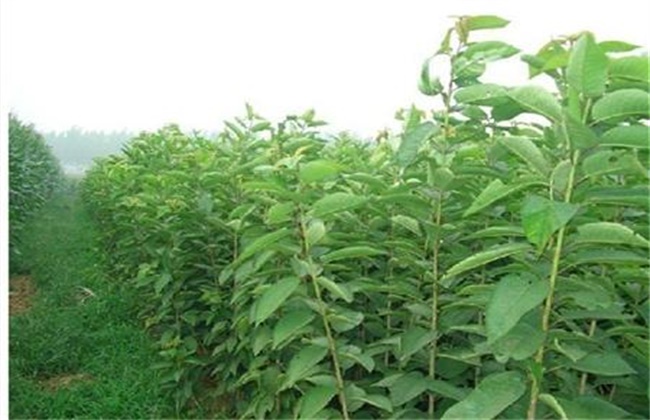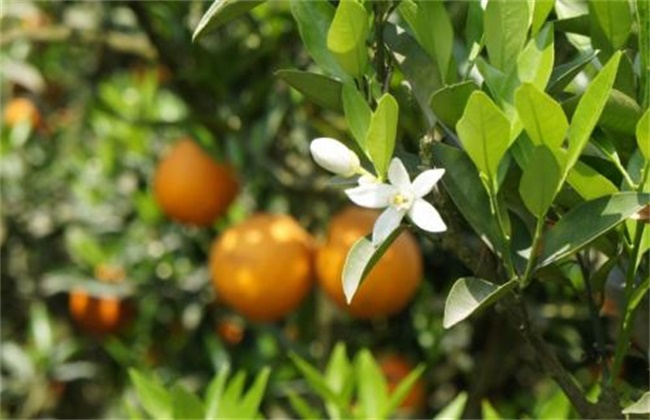Fertilizer and Water Management Technology of navel Orange
Navel orange is a very popular fruit in China, which has a large planting area. The economic value of navel oranges is very high, so more and more people grow navel oranges. When we plant navel oranges, we should pay attention to the fertilizer and water management of navel oranges. Ensuring adequate nutrition and moisture is the key to the normal growth of navel oranges. So how to manage fertilizer and water in navel orange planting? The following editor brings you the fat and water management technology of navel orange, let's have a look!

1. Fertilization in the young tree stage
In the young stage of navel orange, we should pay attention to enlarge the crown and enhance the tree potential. Fertilization should follow the principle of a small number of times, about 8 times a year. Fertilizer should be based on nitrogen fertilizer, supplemented by phosphorus and potassium fertilizer. About half a month before the spring and summer shoots of young trees, rotten organic fertilizer or compound fertilizer should be applied. Then, after each pruning of new shoots, a strong shoot fertilizer was applied, mainly compound fertilizer. With the continuous growth of tree age, we should appropriately increase the amount of fertilizer application, and also cooperate with extra-root topdressing, and stop the application of nitrogen fertilizer after the Mid-Autumn Festival. To control the proportion of nitrogen, phosphorus and potassium, it is necessary to increase the application rate of phosphorus and potassium fertilizer for the young trees that bear fruit in the second year.
2. Fertilization for primary fruit trees
In the early fruit stage of navel orange, we should not only continue to expand the crown, but also ensure its yield. The fruiting mother branch of navel orange should be based on early autumn shoots, so fertilization should also focus on this. Fertilize about 3 times a year, usually in February to start fertilization, apply an appropriate amount of urea and compound fertilizer. Then in the middle and late June, strong fruit fertilizer should be applied, and the amount of fertilizer should be kept at the average amount of fertilizer applied throughout the year. It is mainly based on rotten organic fertilizer, and then from September to October, the application of base fertilizer and fruit-picking fertilizer, combined with hole expansion and soil improvement, should also increase the amount of fertilizer according to the increase of tree age.
3. Fertilization in full fruit period
After the navel orange enters the full fruiting stage, the fruiting mother branch is generally dominated by spring shoots. At this time, the vegetative growth of the tree is in a state of balance in reproductive growth. Therefore, fertilization should be based on spring bud fertilizer and strong fruit fertilizer, at the same time, we should also pay attention to the application of fruit fertilizer and supplement appropriate amount of trace elements. Among them, we should pay attention to the application of strong fruit fertilizer, and the amount of fertilizer is up to half of the amount of fertilizer applied in the whole year. Then, like the primary fruit trees, in September, combined with expanding holes and changing soil to apply base fertilizer, winter fertilizer is mainly applied in autumn, and fertilizer can be used such as green manure, lime and phosphate fertilizer.
4. Watering management
Moisture is very important for the growth of navel oranges. When planting them, we must pay attention to watering them. If the soil is too dry, it should be watered in time to meet the water demand of navel oranges. But also pay attention to control the amount of water, not too much, if too much watering or in the rainy season, then stagnant water drainage. Watering method is best to use sprinkler irrigation, drip irrigation, etc., in the fruit harvest one month before, should stop watering. However, within a week after harvest, water should be watered in time.
The above is a brief introduction of navel orange fertilizer and water management technology. That's all for today's introduction. This article is for reference only. I hope it can help you all.
Related
- Moge, come on! The staff of the peasant association in the producing area of cantaloupe were frightened when the crowd gathered.
- Causes and Solutions of low Fruit setting rate of Apple
- Symptoms and control measures of passion fruit virus disease
- Fruit growing lesson: how do apple orchards keep high yields?
- Can you build orchards in the mountains? What are the pros and cons?
- How to manage the coloring period of Crisson grape?
- This paper introduces the processing technology of two kinds of fig products.
- How much is a month for retired teachers in rural areas by 2020?
- How can strawberry planting increase sugar content? We should pay attention to management in many aspects.
- What are the cultivation techniques on how to improve the yield of golden fruit?



